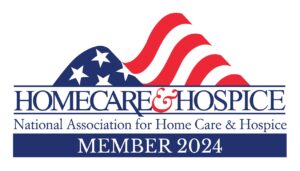America’s population is graying. In fact, if predictions by the U.S. Census Bureau are correct, there will be more senior citizens than children among the country’s population in less than 20 years. In 2035, according to the bureau’s demographers, there will be some 78.0 million Americans with 65 or more years under their belts compared to just 76.4 million under the age of 18. What does this shift in demographics mean for the future of home health care?
An aging population can present serious issues for both the population and the health care system working diligently to serve it. Older adults are more likely to be living with functional impairments and multiple chronic health concerns, so a population that includes more seniors creates a greater demand for health care services. A health care system that can provide effective care while working to preserve each patient’s dignity and independence must manage resources like health care personnel, supplies, and funding with great care to ensure that they are utilized efficiently. What role will home health care play in the coming decades?
In “The Future of Home Health Care: A Strategic Framework for Optimizing Value” researchers point out two simple truths. First, most older Americans are quick to say that they value their independence and prefer to age in place in their own homes. Second, home health care is a highly cost-effective way to deliver necessary health care. These facts make it clear that home health care has the potential to be a valuable cog in a health care system that wants to provide quality care while valuing patient satisfaction and spending limited health care dollars wisely.
Expected Trends in Home Health Care
As both America’s senior population and the demand for health care surge, certain trends will impact the home health care industry. What is the future of home health care likely to hold?
Greater Demand
Older Americans generally prefer to remain in their homes and communities for as long as possible, and they also tend to require more health care services than younger individuals. As a result, the demand for home health care is expected to grow and so are the job opportunities for people working in the field. According to the Bureau of Labor Statistics, the decade between 2016 and 2026 will see a 15 percent increase in the employment of registered nurses, and the opportunities for nursing professionals in home health care will be plentiful. In the same period, the bureau expects to see a 41 percent increase in the employment of home health aides.
More Technology
Technology is already a pervasive force in modern life, and experts expect that its use will be increasingly ubiquitous in home health care and other medical environments. Innovations in treatments and techniques will likely allow more procedures to be performed in outpatient settings, which may further spur the need for home health care. In addition, new hardware and software will likely be introduced to improve patient care and the efficiency of treatment delivery.
Improved Communications
In “Home Care: More Than Just A Visiting Nurse,” researchers noted that it is not uncommon for hospitals and primary care physicians to fail to provide home health care nurses with actionable information about their patients. This communication gap can force nurses to make decisions with incomplete or inaccurate data, which makes their jobs more challenging and can endanger their patients. In addition, home health care nurses often have insights into the lives of their patients that doctors who never see them in their home environments lack, but there is no easy way for them to share the information. Using technology and other means to improve communication between hospitals, treating physicians, and home health care providers could improve both patient care and treatment efficiency.
Better Integration
As technology increases access to information and professionals, patients are becoming more empowered and engaged in their own care. This is fueling expectations for more collaborative care. With home health care providing more services to more patients, experts expect some of the traditional barriers between hospitals, institutions, physicians, and home health care providers to fall under the need for improved communication and cooperation. This is likely to generate a push for better integration of home health care services with those provided by other medical entities.
_____
Could your future be in home health care? At Phoenix Home Care & Hospice, we are fully committed to improving the quality of life of those we serve. To do that, we hire amazing employees who are committed to delivering excellent, compassionate care, and we treat them with the respect that they deserve. Do you think that you would be a good fit for our team? If so, we encourage you to visit our career page and explore the wide range of available openings listed there.






